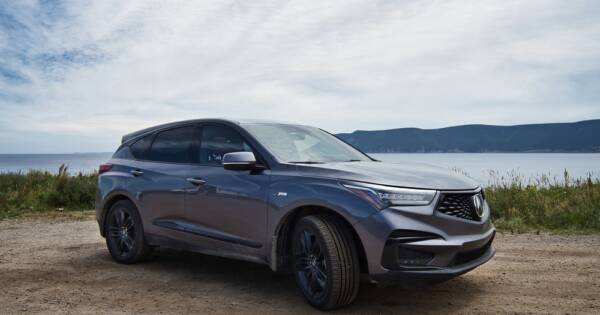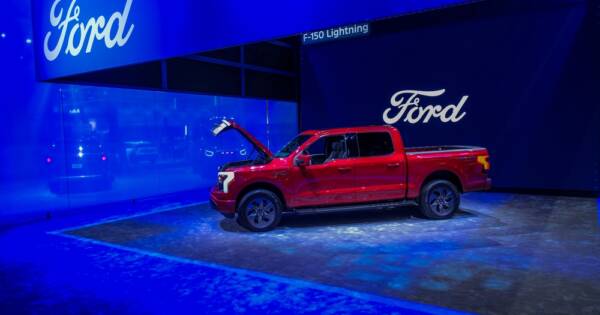Haggling — some people love it, some people hate it. People who like it tend to enjoy the feeling of pushing for a great deal. People who hate to haggle find the entire process uncomfortable. When it comes to used cars, the price can vary due to the year, make and mileage of the car, as well as what features it has and the area you buy it in. Understand key tips to haggle your way through a great used car deal.
12. Research
Buying any used car always need to start with the same step: thorough research. It can be overwhelming at first, since there’s sooooo many car ads to browse and consider. However, start looking, learning, and narrowing things down. First, figure out what kind of vehicle you’re hoping to buy. Do you need a sedan? SUV? Pickup truck? Electric vehicle? Does it need it seat five? Or seven? Which auto brands appeal to you most? Honda? Ford? GM?
Once you’ve narrowed it down to a model (or two), browse user car ads for just that vehicle. You will start to get a sense of the average price, based on things like model year, mileage, and which optional features are included. Now you’re armed with enough information to make good choices and not be out-negotiated. If you know, for example, the average price for a used, base model 2019 Honda CR-V with 35,000 miles on it, you can shop smarter.
11. Do You Even Want to Haggle?
We know, it’s weird to start out a list of used car haggling tips with one that implies negotiating may not be the way to go. The thing is, not everyone likes to haggle over used car prices and not everyone is good at it. If you don’t want to do all the research and preparation needed to negotiate a good price on a used car, you’re not going to do a great job haggling and could end up paying way more than is fair for a used car.
Deciding not to negotiate doesn’t just mean showing up with a blank check. A number of used car dealerships, like Carmax, offer no-haggle pricing that’s fair. Buy a used car from a dealer like that and you may not get as low of a price as you would have otherwise. But, it will save you some stress.
10. Set a Target
Once you decide you actually want to negotiate the price of a used car, you need to set a target. You should do this before you start car shopping, so you don’t waste your time looking at cars you can’t afford. Having a clear target price is the best way to anchor your negotiations because it will keep you focused and ensure that you don’t allow the seller to push for more money than you can pay.
To figure out your target price, look at your budget and see what kind of car payment you can handle each month. If you’re paying cash for a car, you can just decide how much of your money you want to use. You can find a ton of online calculators that will take your monthly payment and tell you the used car price you can afford. Once the target price is set, you’ll know what number to aim for in your negotiations.
9. Secure Third-Party Financing
If you’ve been saving your pennies and plan to buy your used car in cash, that’s great. You don’t have to worry about how to finance your purchase. However, if you’re like most people, you’re going to need a car loan. Many used car dealers will happily provide financing to you, but buyer beware — it’s not always the best deal.
If you can, speak to a bank (or other financial institution or private lender) before you go shopping. They can pre-approve you for a certain amount. That can give you the upper hand when it comes to negotiating, since you won’t be depending on some high-interest loan from the dealership. If you’re buying a used car via a private seller (and you can’t pay cash), securing third-party financing is pretty much a necessity anyway.
8. Find the Right Car
With a target price in hand, start looking for used cars that fit your budget. A good place to research prices for cars, trucks and SUVs near you is a car shopping website like CarsGenius that lets you search from millions of cars from thousands of dealerships.
Finding the right used car and learning all you can about it is a key part of used car price negotiations. Once you’ve decided on the make and model, as well as the model years you’re willing to buy, dive deep into all the features and options the car has available. You’ll also want to study common repair issues and any recalls the automobile has been subject to. Having all that information can help you haggle and gain a better price. You need to know as much about the car as the seller does.
7. Know What a Good Price Is
Let’s say you’ve decided you can spend $15,000 on a used car and found the exact make, model and year you desire. It fits your budget and is the one you want, so it must be a good price, right?
Not so fast. Just because you can afford to pay $15,000 for the car does not mean that’s a good price for it. In fact, the auto may be worth much less than $15,000, and paying that price for it would be throwing some of your money away. So should you do?
There are a number of tools available to shoppers to help determine if a used car price is fair or not. Kelley Blue Book is one of the more established and popular used car valuation sites. Newer sites like CarGurus and iSeeCars also track used car prices so you can make sure you’re paying a fair price for a used vehicle.
6. Know What a Good Price Is For Your Area
Used car prices depend a lot on the area the car is being bought and sold. Big four-wheel drive trucks, for example, are in higher demand in northern rural areas than they are in southern cities. If you’re shopping compact cars in an urban area where there’s a high demand, you’ll need to adjust your negotiations to reflect that the seller probably can get other offers for the car. Unfortunately, you’re going to probably pay more. If, on the other hand, you’re haggling over an all-wheel drive crossover in an area that doesn’t see a lot of snow, you’ll have the upper hand because demand for that kind of vehicle will be low.
As you study used car prices, look for regional variations. Setting your target price based on the national average of the car you want to buy could throw a wrench into your haggling. You could end up offering more than you should or too little for your area and stall the haggling process before it even gets started.
5. Know the Impact of Mileage and Options
Compared to used cars, new car pricing is easy because all new cars have the same number of miles: basically zero. They also have a set price for their features and options. Two used cars that are the same year and make, for example, can have vastly different miles on them and different features.
Before you negotiate on a used car price, understand how mileage impacts used car prices. The more miles a car has, the less you should pay. Similarly, a fully kitted out used vehicle with all the bells and whistles will command more money than the same model with just the basics.
If you don’t need a lot of car tech, you can score a deal by looking for a stripped down model. Also, if you are looking at buying an automobile with a lot of miles on it, you can use that to try and get the seller to lower the price. Look at the prices on cars of the same make and model with similar mileage to bolster your case.
4. Where You Buy Impacts What You’ll Pay
Part of haggling the price of a used car is understanding the seller’s costs. While you’re trying to get the best deal, the seller is trying to make the most money. When you’re dealing with a private seller, you can often get a lower price on the same car because a private seller doesn’t have a lot of costs associated with selling.
On the other hand, a dealership has to pay for things like utilities, staffing costs, advertising and other overhead. Keeping the seller’s costs in mind will make you a better negotiator because you’ll be able to understand where the other side is coming from. You’ll also be able to shop around for the seller with the right combination of price and services for you.
3. Use the Inspection to Your Advantage
You want to have any used car you’re thinking of buying professionally inspected not only to make sure you’re not buying a lemon, but also to give you some potential leverage in negotiating the price. The inspection can turn up issues with the car that you may decide are too severe and you just want to walk away from.
The inspection can also turn up small issues or potential issues (like a part that may soon be worn out) that you can take back to the seller to get them to lower the price. If, for example, the inspection finds that the air conditioner will need a charge, you can ask the seller to lower the price to reflect the fact that the car will need repairs soon.
2. Do It In Writing
Part of the reason people don’t like haggling is because it can feel uncomfortable. That’s something that a lot of car sellers and dealers are counting on. They negotiate all the time so they’re likely more comfortable doing it than you are.
One way to lessen the discomfort is to negotiate via email or text message. This can help you keep some of your emotions out of the process and just focus on the facts. You’ll buy time to think about what the seller is offering and to consult your homework to make sure you’re getting a fair deal. It’s a lot easier to walk away from a bad deal when the seller isn’t right in front of you. Also, you’ll have a record of the agreed-upon price if you ever need it.
1. Be Nice!
This last tip is for both buyers and sellers: be nice! Many people go into used car price negotiations feeling adversarial. The seller (or the buyer) isn’t out to get you. They’re just trying to get the best deal for themselves — just like you are. When you’re negotiating, be polite. Don’t diss the seller or the car. Stick to the facts about what the car is worth given its condition, mileage and the area you’re in.
Look at used car price haggling as less of a competition and more as a process for getting both people to a deal that they’re happy with. With the right attitude and plenty of research to back yourself up, you’ll be haggling like a pro in no time.




